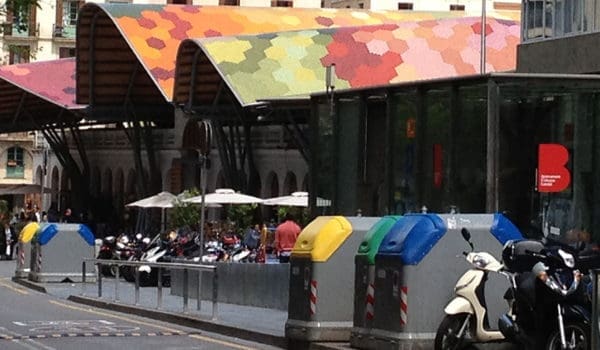Air quality in Europe is getting better. However, a significant proportion of Europe’s population still lives in cities and areas where at times, noise and air pollution may lead to health problems. Norwegian scientists are now tasked with leading the work of compiling the knowledge base the decision-makers in Europe need to give us better air and quality of life.
Air contamination does not care about borders. Air pollution is also closely linked to transport, noise and pollution from industry. Thus, solutions that lead to abatement in one of the fields should help to remedy the others. That is, in very short terms, the background for the European Topic Center on Air pollution, Transport, Noise and Industrial pollution – ETC/ATNI, which will assist the European Environment Agency (EEA) in the efforts to improve air quality in Europe. They will also look into transport systems, noise and industrial pollution.
The EEA has assigned the topic center to a consortium led by NILU – Norwegian Institute for Air Research. In addition, the consortium consists of organizations from Austria, Belgium, Czech Republic, France, Greece, Spain, and the United Kingdom. The new topic center starts in 2019.
Air pollution is a Pan-European problem
One of EU’s overall objectives in its Environment Action Program to 2020 is to “safeguard the Union’s citizens from environment-related pressures and risks to health and wellbeing”.
The seven EEA topic centers are important measures to ensure this. Together, they will assist the EEA in all environmental areas where the EU designs policies, for example industrial pollution, climate change mitigation, climate change impacts, water management, resources and ecosystems, marine and coastal environment, biodiversity, ecosystems, agriculture and forests, in addition to air quality and urban challenges.

– It will be exciting to lead a highly interdisciplinary team who both wishes and has the opportunity to collaborate across all environmental policy areas, says NILU’s EU coordinator and research director Alena Bartonova.
– The recognition that environmental challenges must be solved based on the knowledge of the environmental system as a whole is central to our work.
Bartonova and research director Cristina Guerreiro will lead ETC/ATNI on behalf of NILU. Bartonova believes that the topic center’s work will provide a better understanding of challenges the different countries face when they implement policies and measures to improve the environment.
– The challenges can be anything from technical problems with digitalization and data acquisition, integrated assessments and generating the knowledge base, right up to governance challenges, she says.
– To establish a well-functioning system for environmental protection, we need to connect all of these elements.
In addition, Guerreiro believes that although good solutions to address certain challenges exists, there is an increasing need to see environmental problems in context.
– It is necessary to take into account all relevant considerations, she says, – everything from air quality, climate change and noise to the design, implementation and evaluation of environmental policy. This means that experts must work more interdisciplinary and the government must work across responsibilities and from an international to a local level.
Collaboration across subjects and countries

European topic centers (ETCs) are consortia of institutions from the different EEA member countries. Each topic center will assist EEA on different challenges and tasks within a given environmental area. The activities are derived from the EEA strategy and management plan.
The ETCs constitute interdisciplinary networks where experts from many countries meet and work together to find sustainable solutions for their topic area. This collaboration again helps build local competence on environmental and climate change and sustainable sectoral policies in the countries.
– We are all proud that NILU has been given the key responsibility to lead one of EEA’s seven topic centers and, in addition, to participate as a partner in the ETC for Climate change Mitigation and Energy, says NILU’s Managing Director Kari Nygaard.
– I would also like to thank the Ministry of Climate and Environment for their support in this important work of promoting knowledge of key environmental issues in Europe.
Large, interdisciplinary expert team
In total, sixty leading scientists and experts in air quality and air pollution, transport, noise and industrial pollution will work together to find solutions to the challenges assigned to the topic center.
The work is organized in three work packages. The first deals with data reporting, quality control and support, with emphasis on providing targeted and reliable data relevant to environmental and sectoral policies. Harmonizing the technical systems for data reporting is of high priority. Other important tasks are data collection and organization, quality assurance and control, and dissemination.
The main purpose of the second work package is environmental assessment related to the development and implementation of environmental policy.
– Here, we will contribute with assessments of status, trends and future scenarios, and advise on communication with different user groups, explains Bartonova.
– Today, private individuals and civil society engage more and more in environmental issues, so in addition to the “usual” ways of retrieving data, we also want to use citizen science to make assessments and advice as good and relevant as possible.
The third work package will ensure efficient implementation of the partnership agreement. It is about internal decision-making, internal and external communication structures, risk management, quality assurance and control.
– We will work closely with the European Environment Agency in the implementation of the ETC, says Bartonova, – and of course, with other topic centers to ensure effective synergies and coordination. It will all be very exciting!
